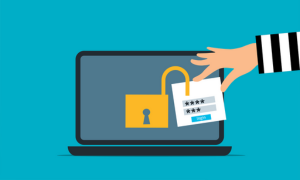
May 21 2024.
views 123You're relaxing at home, curled up on the couch with your phone in hand. You're not taking pictures, not video chatting with friends. You're simply engrossed in the latest news article. Yet, in the background, the tiny camera lens on your phone remains active. Is it capturing stray images? Recording snippets of audio? The answer, depending on your device and settings, could be a yes.

This isn't just something we're making up. There have been real cases where weaknesses in programmes (software) or bad apps let someone else use your phone's camera without you knowing. It's like your phone is secretly watching you! Imagine how scary that would be, someone seeing you in your own home. This is a creepy thought, but it shows why it's important to know about the dangers of always being connected online.
Social media is everywhere these days, like a constant playground everyone's on – from teenagers to grandparents! It's a great way to stay connected, but just like any playground, there can be some bumps and bruises. A lot of people I know have had things happen on social media that make them wonder if it's worth it. But it is a reminder that we need to be mindful of online safety.
One friend regularly receives messages from fake accounts saying things like, “You look beautiful. Can I have your picture and number? Can we meet? Trust me, I'm honest.” Some even threaten to leak private information if she doesn’t comply. Another friend got a creepy call that left her feeling scared and upset. She couldn’t face anyone, hid under her blanket, developed dark circles, and skipped meals due to stress. She didn’t tell anyone about the incident.
Mobile scams promising free smartphones and whatnot have been a persistent problem for a while now, yet numerous individuals still fall victim to them. Scammers send enticing messages or emails claiming recipients have won a high-end mobile device, urging them to click a link to claim their prize. However, instead of receiving a new phone, victims find themselves divulging personal information or downloading malware onto their devices. These fraudulent schemes have led to significant financial losses and compromised personal data, highlighting the need for increased vigilance and scepticism towards such too-good-to-be-true offers.

Have you experienced similar challenges? It's crucial to recognise these issues and work on solutions together. Many of us neglect digital safety practices, perhaps feeling reluctant to address them, but there's still time to make improvements. Let's explore ways to tackle these issues effectively.
Adjust Privacy Settings: If you're worried about your mobile phone or PC camera being on, check your device's settings. Go to app permissions and disable the camera. You can enable it when you need to use it.
Enable Two-Step Verification: If you use social media a lot and want to avoid fake and hacking information, turn on two-step verification for any app that allows it. Make sure your email has it by adding a recovery email and phone number. This feature is designed for your safety, so don’t hesitate to use it. Also, enable two-step verification on WhatsApp and any other apps that support it to keep your accounts secure.
Be Cautious with Links: You absolutely must be extremely cautious about clicking on unknown links, as they can potentially lead you to malicious websites specifically designed to steal your personal information or infect your device with malicious malware that can wreak havoc. Always, and I cannot stress this enough, ALWAYS verify the legitimacy of a link before clicking on it, especially if it's from an unknown source or seems even the slightest bit suspicious. One careless click could have devastating consequences. For example: Being curious and clicking on unhealthy giveaway links!
Recognise Secure Websites: When browsing the internet, it is of utmost importance that you are able to identify safe and trustworthy websites. Look for HTTPS encryption (indicated by a lock icon in the address bar), as this ensures that your connection is secure and your data is protected from potential eavesdroppers who could be lurking. However, do not let a website's use of HTTPS lull you into a false sense of security – be extremely wary of websites with unprofessional designs, numerous intrusive pop-ups, or glaring grammatical errors, as these are often telltale signs of a scam or phishing attempt designed to entrap the unsuspecting.

Beware of Scams: Be extremely wary of unsolicited messages, emails, or phone calls that claim to offer lucrative opportunities or request sensitive information. Do not be fooled – reputable organisations will never, under any circumstances, ask for your passwords, credit card details, or personal identification numbers through unsecured channels. If something seems too good to be true, it undoubtedly is a trap, and you must err on the side of caution every single time.
Guard Personal Information: Guard your personal information vigilantly. Oversharing personal details, such as your address, phone number, or travel plans, can make you an easy target, leaving you vulnerable to potential threats like stalking, identity theft, or even burglary. Always review your privacy settings on social media platforms and limit the amount of personal information you disclose to the public, lest you inadvertently invite danger into your life.
Keep Software Updated: Do not neglect to keep your software and operating systems up-to-date. Software updates often include critical security patches that address vulnerabilities and protect you from emerging cyber threats that could compromise your safety. Enable automatic updates immediately, and regularly check for and install any available updates for your devices, applications, and antivirus software without delay. Complacency in this regard could prove to be a catastrophic mistake.
0 Comments